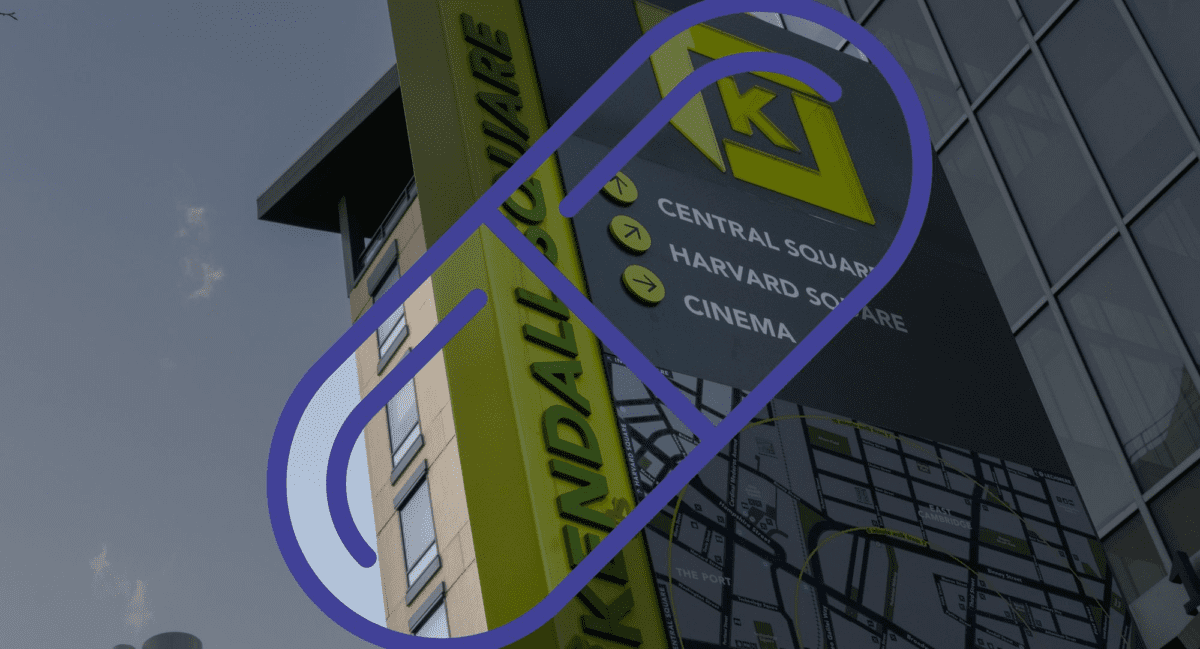The following was first published at BioPharma Dive on 22 November 2022.

Groundbreaking science isn’t new to Kendall Square. It’s been a foundation of the Cambridge, Mass. neighborhood since 1876, when Thomas Watson picked up the first-ever “long distance” phone call from his partner, Alexander Graham Bell, at what is now the site of a biotech incubator. The call originated only two miles away from Bell’s lab in Boston, but it triggered a domino effect of transformations that forever changed how we communicate with each other.
About a century after that pivotal phone call, another science revolution kicked off in Kendall Square, this time involving the building blocks of genetic code. At the time, 1970s Cambridge resembled most other post-industrial cities, with its abandoned factory buildings, decrepit parking lots and a lingering smell of chemicals in the air. But a wealth of talent remained in the city at institutions like MIT and Harvard. So in 1977, when the city council passed the first legislation in the U.S. that allowed and regulated research into recombinant DNA, the floodgates opened and the neighborhood transformed into a bustling hub. Cambridge is now home to over 250 biotechnology companies, more than 120 of which are within the Kendall Square zip code. Its rapid rise as an innovation hub over the last half-century — and the last two decades in particular— has been driven by a sturdy talent pipeline, government support and a small footprint that allows bright minds to bump into each other like gaseous atoms.
In recent years, however, dynamics in the square have shifted as office and lab space has become scarce. Now, more large pharmaceutical companies are moving into the city, while early stage biotechs vital to the future survival of the ecosystem are being priced out.
“We had vacancy rates of zero and 1%, in Boston and Cambridge and that’s not great if you’re a smaller emerging biotech company looking for space, having to overpay for a space or get a bigger space,” Joe Boncore, president of MassBio, said.
And to remain competitive with other hubs across the country, many of which are boasting higher vacancy rates, the state has begun incentivizing companies to settle in the Greater Boston suburbs.
Now, more space is becoming available as some companies opt to go fully remote or hybrid, but rising rent prices in Kendall and Boston are continuing to corner small companies out of the market. According to a recent CBRE research report, the going rate for office space in Cambridge was $85 per square foot in the third quarter of 2022, compared to an average cost of $67 in 2020.
That’s one of the main reasons biotechs are continuing to move just outside of the main hub in cities like Watertown, Sommerville, Natick and Waltham — with only a few taking the state up on its investment offers to move further west.
Cities where MassBio member companies are headquartered.
“They don’t have to overpay for space. They can spend more money on the science,” outside of the city, Boncore said. Trzupek, who has helped lead Abata’s transition from Kendall Square to a new biotech-focused development in Watertown’s Arsenal Yards, said the pandemic also lessened the need for companies to be right in the heart of the action.
“I feel like the tradeoff is much less than it would have been five or 10 years ago, when you probably would have felt a lot more stickiness to stay as close as you could to that Kendall Square T-station,” he said. “The amount of interactions that you just get on a random basis are different.”